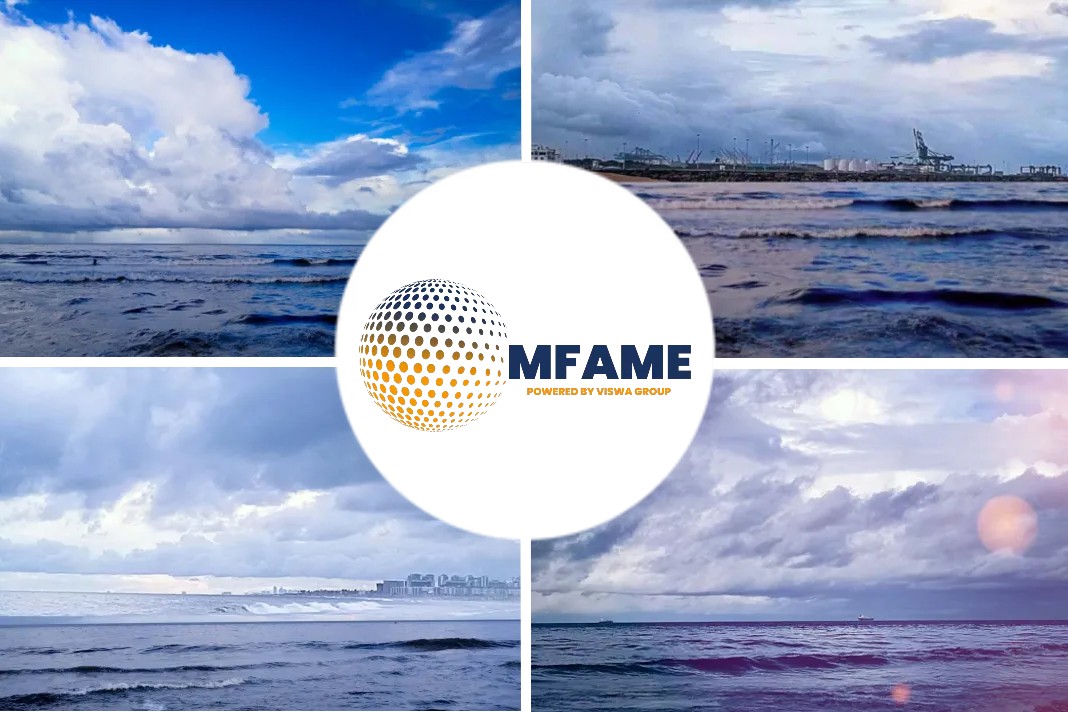The London-based Baltic Exchange has bold growth plans in the wake of its acquisition by the Singapore Exchange (SGX) last year.
Among other things, the maritime information provider plans to introduce more freight market benchmarks as well as new liquefied natural gas (LNG) and container indices by this year.
The Baltic Exchange provides independent rate assessments for various bulk carriers, notably the Baltic Dry Index, as well as assessments for a range of tankers moving crude and products of oil.
Expanding its offerings will allow the exchange – with a history that dates back to 1744 – to “remain at the heart of the bulk shipping industry for the long term”, chief executive Mark Jackson told The Straits Times in an e-mail interview.
“The next steps will be taken in close collaboration with our shipbroking panellists and end-users to identify the best reporting model, routes and vessel descriptions,” said Mr Jackson, who was appointed head of the exchange in January.
On top of rolling out more container routes, there is potential to develop derivative-based risk-management tools for the container sector as well, he said, adding that both the LNG and container indices are ideally suited to being published from Singapore.
“Singapore is at the heart of the rapidly developing LNG infrastructure in Asia, and we hope to add value to SGX’s current offerings and play our role in developing Singapore as Asia’s leading LNG trading hub,” he said. “Adding a freight element to existing LNG pricing would help develop this market.”
Industry players such as dry bulk shipping consultancy IBulk (Singapore) believe it will be good to have access to new sectors from the convenience of the Baltic Exchange as all shipping markets are interrelated, said managing director Sencer Sahinkaya.
Still, Mr Teo Siong Seng, managing director of shipping line Pacific International Lines, believes it could take some time before a new container index can take off here, given that the market already has several such indices, including the highly cited Shanghai Containerised Freight Index.
Meanwhile, the Baltic Exchange has also set up a Baltic Asia Advisory Committee, which will meet on a regular basis and advise the exchange on maritime matters – such as code of conduct, new routes, vessel descriptions and maritime digital infrastructure – with a focus on the region. The Asia-based committee comprises 14 members, including the Baltic Exchange and SGX.
“Singapore, Hong Kong and Shanghai are fast-growing maritime service hubs… It is vital that the Baltic Exchange is able to understand their needs,” Mr Jackson said.
He added that the committee received useful inputs at its inaugural meeting on April 28, in relation to its proposals to develop the new indices, launch an escrow service, improve its debt-collection service and develop post-trade tools.
The escrow service, for example, will be used for sale and purchase transactions, although the Baltic Exchange hopes to eventually expand it to include financial securities in cases of ship arrest or disputes.
At last month’s Singapore Iron Ore Week, Mr Jackson noted that the acquisition by SGX, completed in November last year, has “reinvigorated” the Baltic Exchange.
“The SGX investment has come about at a time when seaborne trade has become more Asia-centric and at a time when technology is challenging the way in which we all work,” he told a forum.
“I believe that the new structure of the Baltic Exchange, now with a single shareholder who is interested in long-term goals, allows us to grow our leadership profile, to play a bigger role in setting standards, building consensus and leading change in the shipping markets.”
Staying relevant in the global maritime industry is key, added Mr Jackson. “It means reacting to the shift in geographical importance as seaborne trade becomes more and more Asia-centric. It is about being proactive about the way the marketplace conducts its business, especially as technology, disruptive or otherwise, brings about change.”
SGX chief executive Loh Boon Chye, who also spoke at the forum, noted that the industry has seen “unprecedented price volatility and global headwinds that have made risk management increasingly relevant in shipping and commodities”.
“Our strategic acquisition of the Baltic Exchange last November seeks to integrate the risk management of cargo and freight, and link the two liquidity pools, while bridging the global shift in seaborne trade towards Asia,” said Mr Loh.
Did you subscribe for our daily newsletter?
It’s Free! Click here to Subscribe!
Source: The Straits Times
























